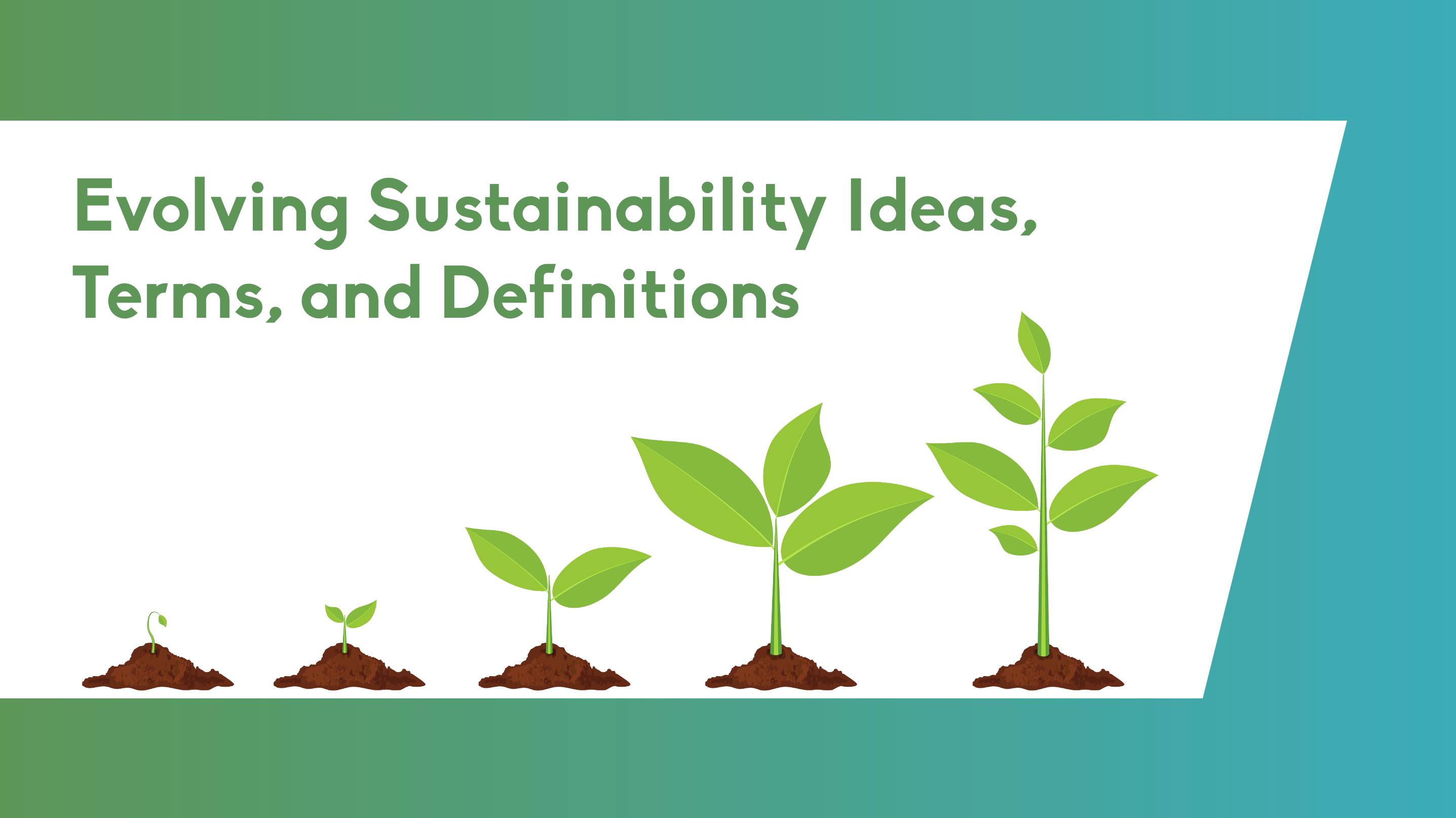Evolving Sustainability Terminology in Cannabis Packaging
Sustainability is a continually evolving idea. Sustainability is also one of the hottes...

Sustainability is a continually evolving idea. Sustainability is also one of the hottest marketing trends of the last five to ten years.
The concept of sustainability can be challenging to understand because our definition of sustainability is constantly evolving. Sustainability often involves trade-offs because it’s impossible to produce something with no environmental impact.
The marketing of sustainability and sustainable business practices is also often misleading, commonly referred to as greenwashing.
More often than not, the terminology, ideas, terms, and definitions related to sustainability are misunderstood or misused. Even when understood and used correctly, these ideas, terms, and definitions change over time.

Sustainability is Always Evolving
Sustainability is a fluid concept because sustainable innovation, our understanding of sustainability, and sustainable practices are all improving at an extremely rapid pace.
Many practices, processes, and ideas that were considered sustainable five to ten years ago are no longer considered sustainable today. This is why it’s important to periodically examine and update the sustainability terminology we use to define sustainability.
Sometimes updating terminology isn’t enough. Sometimes it’s necessary to develop new terminology that’s better suited for defining a particular practice, process, or idea related to sustainability.
Examining the terminology we use and updating definitions is also essential for transparency. Along with reducing the impact of single-use cannabis packaging, our goal at Sana Packaging is to be as transparent as possible by using sustainable materials.
What is Ocean-Bound Plastic
When we first began using ocean plastic in 2019, it was industry standard to call all ocean plastic "reclaimed ocean plastic."
Today, our understanding of ocean plastic is more nuanced and we believe it's more accurate to call the majority of the ocean plastic material we use "reclaimed ocean-bound plastic."
Ocean-bound plastic is defined as plastic waste within 50 kilometers of the coast that has escaped traditional waste streams and entered the environment.
Ocean plastic, which includes ocean-bound plastic, also includes plastic waste that has made its way to the coastline, waterways, nearshore, and deep sea.
While the plastic we source is ocean plastic, it is predominantly ocean-bound plastic. And while ocean-bound plastic meets industry standards for ocean plastic, we want to be purposeful with our language and remove any risk of making misleading consumer communications.
We view ocean plastic - including ocean-bound plastic - as a stranded resource. On top of being post-consumer recycled material, our goal in using this stranded resource is to bolster the demand for reclaimed plastic and the infrastructure required to remove this waste from the environment.
Ocean Plastic Terminology
Moving forward, we will be using phrases like:
- “Reclaimed ocean-bound plastic”
- “Recycled ocean-bound plastic”
- “Turning off the tap on ocean plastic waste”
- “Keeping our oceans clean”
- “Helping to stop ocean plastic pollution”
- “Helping to build a circular economy”
We encourage our customers to use these phrases as well.
In Conclusion
Terminology and definitions associated with sustainability will continue to change moving forward. Even the definition of sustainability will continue to change. After all, change is the only constant in life.
And as the world around us changes, our mission will also remain constant: to reduce the impact of single-use packaging by leading the cannabis industry towards a sustainable future.

About Sana Packaging
Sana Packaging is a sustainable packaging brand that designs and develops cannabis packaging using plant-based, reclaimed, or recycled materials.
Contact us if you're ready to discover the real impact your packaging has on the environment, and if you're ready to build a long-term relationship with a cannabis packaging supplier you can trust. It all starts with a conversation!
